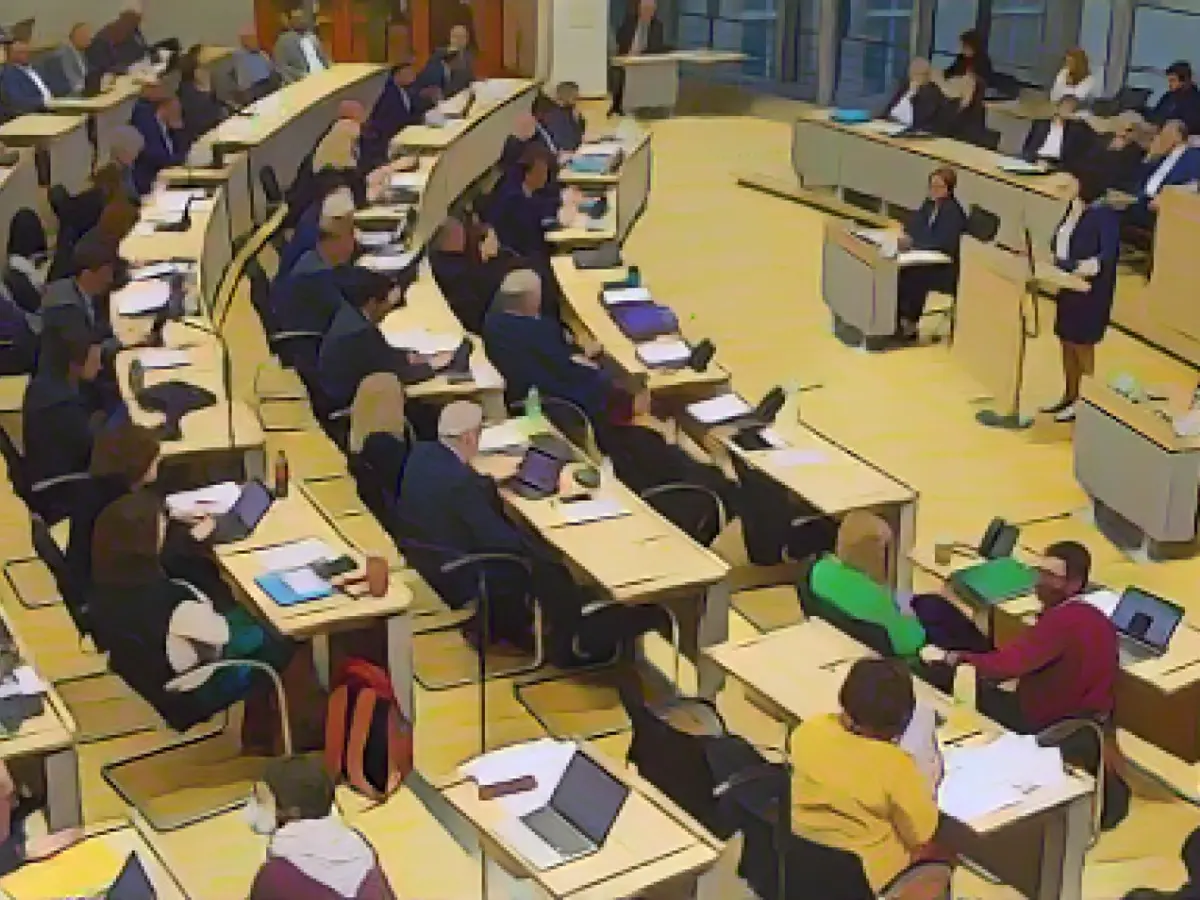Green Critique of Habeck's Mercosur Push
The Greens' Discontent with Mercosur Trade Negotiations
The German Greens, led by Minister of Economic Affairs Robert Habeck, have faced backlash from their base over the ongoing negotiations for a trade agreement with Latin America, particularly Mercosur countries like Brazil and Argentina. During the party conference in Karlsruhe, delegates voted for an amendment to the European election program, rejecting the EU-Mercosur agreement in its current form.
The Green Party's Concerns
The Greens have raised several concerns regarding the proposed deal. They argue that the agreement could potentially fuel deforestation, particularly in the Amazon rainforest, due to increased soybean cultivation for export to the EU. This concern is shared by environmental organizations, including Greenpeace, which has pushed for a reconsideration of the Green Party's position.
Negotiations and Sanctions
The amended program text calls for renegotiations to achieve fundamental changes, advocating for the suspension of trade preferences as a form of sanction if a partner country fails to meet its social, environmental, and climate commitments. This reflects concerns that the agreement could have damaging environmental and social impacts.
European Alliances and Global Struggle
Foreign Minister Annalena Baerbock argued for maintaining trade agreements between democracies, emphasizing their potential to work beyond just trade and promoting new alliances in the global struggle against autocracies. However, dissent within the party stands as a challenge to these goals.
The Future of the EU-Mercosur Agreement
The close vote on the amendment indicates deep divisions within the Green Party on the issue. If implemented, the amended text could create tension within the party and potentially complicate relations between the party base and leadership. Moreover, the Greens' opposition to the agreement could leave Latin America vulnerable to forming economic alliances with countries like China, which may not prioritize such social and environmental concerns.
The Environmental and Social Implications
The opposition to the EU-Mercosur agreement within the German Green Party stems from several environmental and social concerns:
- Deforestation and Ecological Degradation: The agreement could lead to increased deforestation and environmental degradation in Mercosur countries, particularly in the Gran Chaco forest.
- Human Rights Violations: The expansion of industries like logging and mining could have severe human rights implications, particularly affecting indigenous peoples in Latin America.
- Climate Action Hypocrisy: The EU's commitment to climate action through initiatives like the "European Green Deal" is seen as hypocritical, with the trade agreement potentially allowing the export of climate-wrecking products and undermining European climate leadership.
- Social Concerns: The agreement could negatively impact labor standards and contribute to the eviction of communities from their territories, leading to unfair competition for European farmers and workers.
- Civil Society Opposition: Over 340 organizations from across Europe and South America have called for the EU to cease negotiations, reflecting widespread public opposition to the deal.








